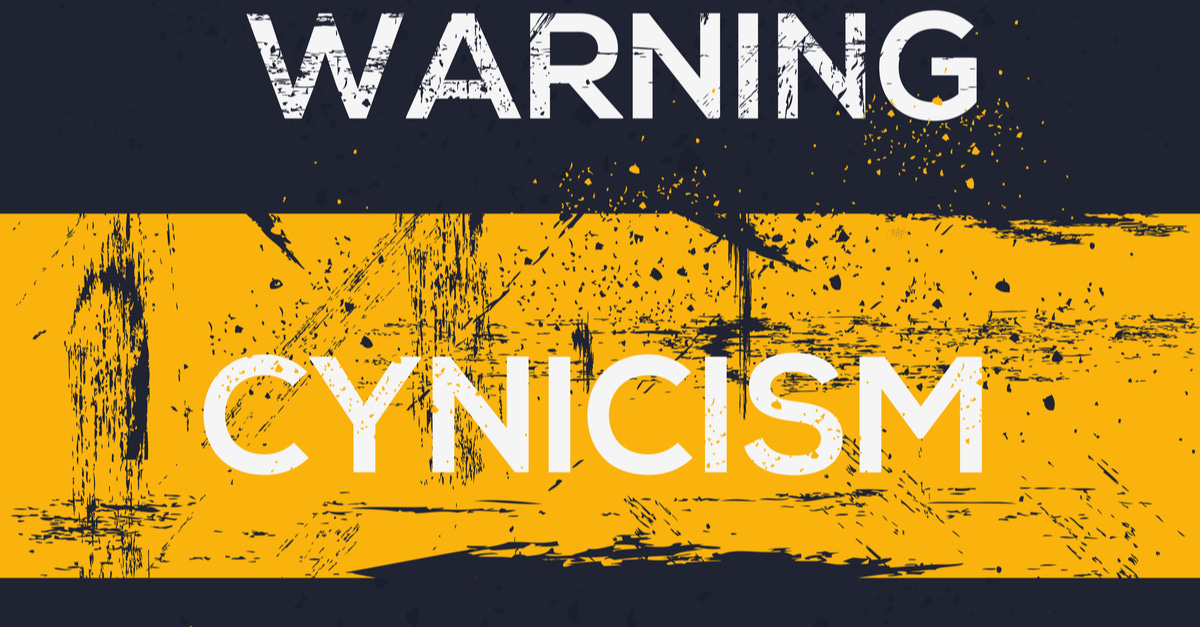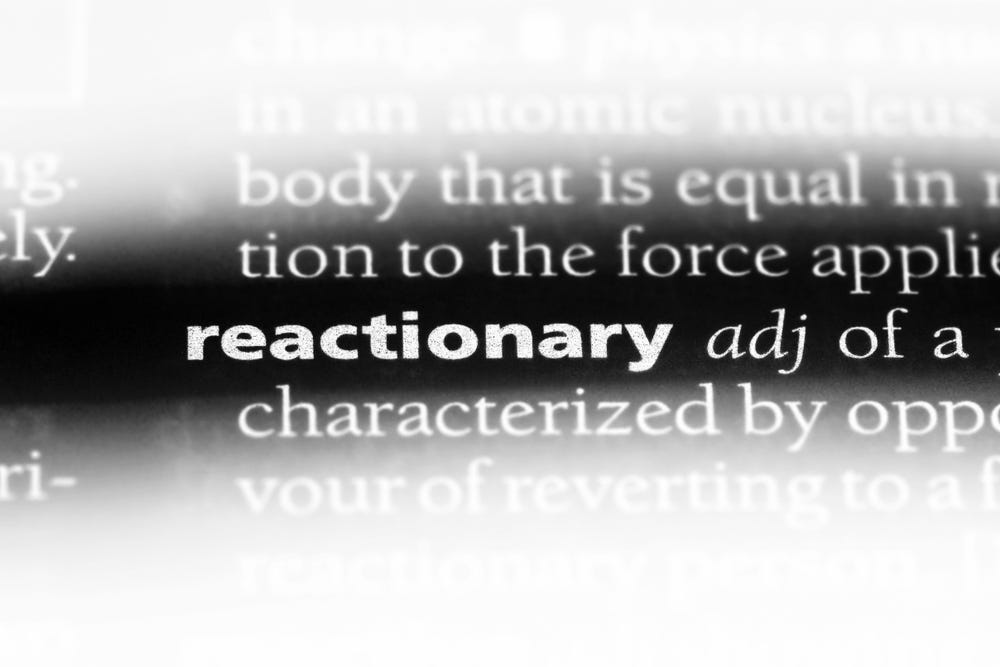E-Pluribus | January 19, 2022
Cynics versus believers, 'disclosure' as a charity killer, and how to avoid becoming a reactionary.
A round up of the latest and best writing and musings on the rise of illiberalism in the public discourse:
Abigail Shrier: Who Will Win America: The Cynics or The Believers?
At her Substack The Truth Fairy, Abigail Shrier writes that the widest divide in politics is no longer between conservatives and liberals, but between those who continue to believe in the principles and promise of America versus those willing to denigrate the country and adopt destructive tactics to achieve their ends.
On this MLK Day of 2022, the new fault line in American politics runs not between Liberals and Conservatives, who find themselves on the same side more often than in many years. It’s between Believers and Cynics: Those who possess deep faith in bedrock American principles—free speech, due process, equal protection, religious liberty—and the Cynics, who regard those liberties as ornamental, insufficient to stop the necrosis of a society in an advanced state of decay. Cynics on the Left and Right disagree about whether America was ever great—but they agree that it’s far from great now—little better than the worst despotisms on earth, and certainly in no position to oppose them.
America has always had her Cynics, but in the last decade, they have risen to power through Big Tech, which glorifies all disruption, and President Donald Trump, who often evinced as much “move fast and break things” contempt for our institutions as Silicon Valley titans. Politicians have always operated cynically, but the trendy “America is over” nihilism on Left and Right surpasses the occasional instrumental hyperbole exercised in order to pass a bill or win an election. On the Left, the Cynics accuse vast swaths of America of white supremacy or treason. They make no effort to forge common ground because you don’t invite Lucifer to lunch.
[…]
The Cynics lack any real commitment to America’s bedrock values or the American political system, which they are always clamoring to overhaul. Left-wing Cynics claim to care about LGBTQ rights, but never express a peep of disapproval over the execution of gays in the Islamic world. They can barely muster a note of concern about suppression for speech whenever the other team’s speech is suppressed.
[…]
As for the Believers—Liberals and Conservatives—they disagree fervidly among themselves about how hard we ought to clamp down on guns, abortions, illegal immigration, and carbon emissions. Whether the death penalty or the death tax is more morally offensive. Whether Scalia or RBG had the better idea of what a justice of the Supreme Court ought do with her pen. These are profound differences, not to be trivialized. But Believers agree that our bedrock constitutional liberties embody American greatness—and that they are the ticket to saving an America that remains, as Lincoln put it, “the last best hope of earth.”
[…]
But between Liberals and Conservatives today there is broad agreement: that America is fundamentally good. Imperfect, obviously. Currently imperiled, for certain. But full, coast-to-coast, with optimistic, generous, and industrious people. Our Constitution represents an astonishing achievement, the key to helping us out of whatever mess we’re in. We are all still Americans, after all.
Read it all.
Jeremy D. Tedesco: Cancel Culture Targets Charity
Under the guise of accountability, a group called Unmasking Fidelity is attempting to publicize the names of donors and their chosen charitable causes. Jeremy Tedesco writes at the Wall Street Journal that this invasion of privacy will chill philanthropy as it exposes donors to pressure and criticism for issues unrelated or tangential to their donations, and all sides of the ideological spectrum should oppose it.
Unmasking Fidelity, a loose coalition of fringe groups, recently delivered a list of demands to Fidelity Charitable, which manages a donor-advised fund through which account holders can direct contributions to their favorite nonprofits. According to its website, Fidelity Charitable distributed $9.1 billion in 2020, making it the nation’s largest grant maker.
On the list of Unmasking Fidelity’s demands was a call for Fidelity Charitable to disclose five years’ worth of its contributions to 10 targeted organizations, including the Family Research Council, Turning Point USA and my employer, the Alliance Defending Freedom. These are organizations with which the activists disagree on a variety of hot-button issues. Unmasking Fidelity is also demanding that Fidelity Charitable impose viewpoint-based litmus tests on the charities and causes its account holders can support. Those litmus tests would handicap conservative groups and advocacy.
No matter what you think about the issues of the day, everyone should oppose this name-and-shame censorship. A politicized philanthropic culture, in which an outside activist’s demands trump a donor’s intent—and even expose donors to harassment—is dangerous for people of every political stripe.
Read it all here.
Seth Moskowitz: The Reactionary Trap
Political, cultural and social battles and debates often involve strong emotions and beliefs, and Seth Moskowitz at Persuasion warns that simple advocacy can spill over into reactionism, and not just on the right. Moskowitz calls on a number of current thinkers from across the spectrum for insight and develops five recommendations for avoiding this trap, excerpted below.
A reactionary is someone with extreme opposition to dramatic social or political change. Sometimes, of course, dramatic change is destructive, and opposition to it is often justified. What distinguishes the reactionary is that they end up making two key intellectual mistakes:
Becoming so preoccupied with who or what they are against that the foundation of their politics is reflexive opposition rather than first principles or reason.
Vastly inflating the threat of whatever it is that they oppose, driving responses disproportionate to the scale of the harms they critique.
These mistakes, which I will call “opposition politics” and “threat inflation,” lead reactionaries to conjure up an imaginary phantom and adopt extreme tactics to fight it, tossing nuance aside in the process.
It is not hard to see why decent people can succumb to reactionary sympathies. Reactionaries truly believe that, in the words of historian Mark Lilla, “whether the society reverses direction or rushes to its ultimate doom depends entirely on their resistance.” What room is there for restraint if someone believes they are society’s last bulwark against ultimate doom?
[…] I [Moskowitz] emailed several [thinkers] for advice on steering clear of a reactionary mindset. Here are the five best recommendations that came from those conversations.
[…]
Learn to recognize and avoid “us-vs-them” thinking. This tribalist instinct leads to hostility and reflexive opposition towards those deemed the “other.” Chloé Valdary, the founder of an anti-racist and diversity training company, said that “to escape an us-vs-them mindset, it's [...] helpful to be able to pause and ask yourself when you've entered into a counter-dependent relationship with someone or some idea, where your identity has become dependent upon countering someone else.”
[…]
Take seriously the possibility that you are wrong. This is by far the most common bit of advice that I received. Valdary said that “everyone is susceptible to self-deception, because we are all human beings. It's not a left/right thing”; Dreyfuss told me that “you don’t need to be right all the time but the one thing you do owe people is attempting to be intellectually honest”; and Jilani said that it is important “to be curious and be vigilant about flaws in your own thinking.”
Read the whole thing.
Around Twitter
Jesse Singal with a modest proposal regarding proposed legislation in Florida:
Via the Foundation Against Intolerance & Racism, here’s Jefferson Shupe with a thought on how to be a real rebel these days:
Whatever one thinks of vaccination-based exclusions and prohibitions, the unironic use of “greater good of society” in a political context should give everyone pause:
And finally, via The Daily Wire and Parenting Defending Education… Privilege Bingo!











